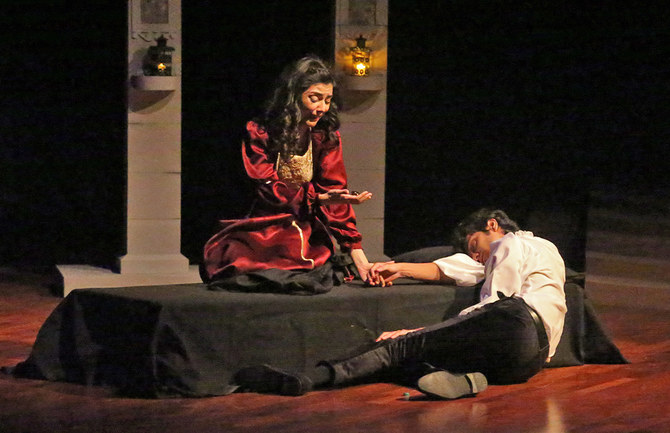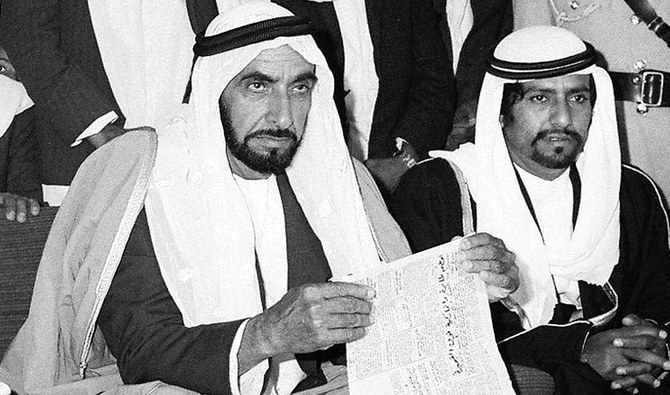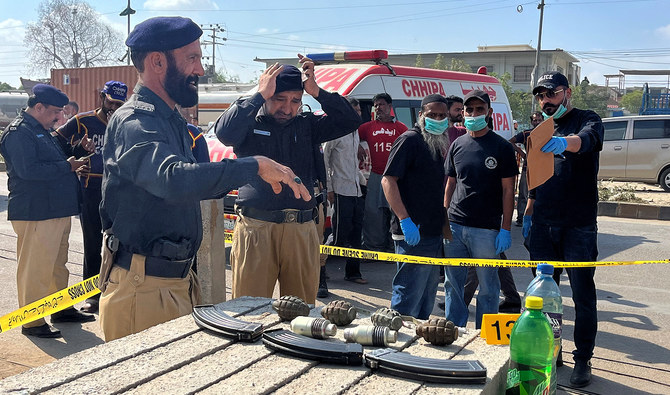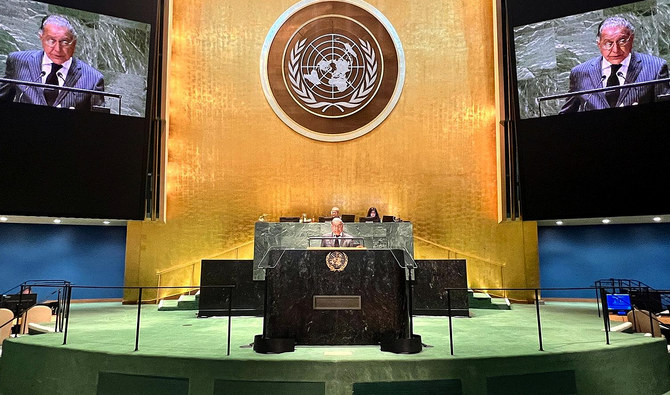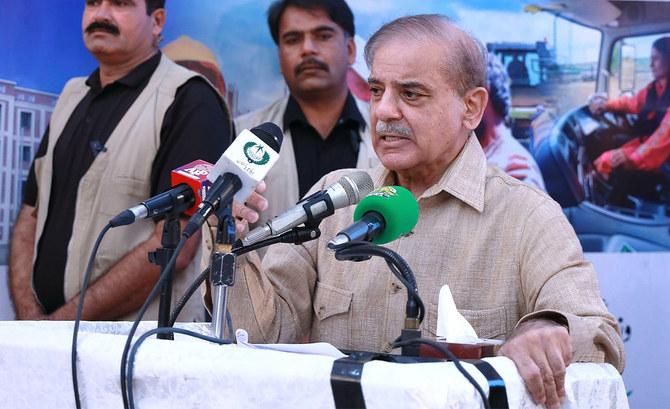KARACHI: A string of new stage productions in the megacity of Karachi in recent weeks have rekindled hopes a struggling theater industry might see a revival, with veterans of the field calling for more training institutions and amphitheaters and emphasizing the importance of original scripts in promoting the performance art.
The inception of Urdu theater dates back to 1855 with the play Indrasabha but the distinct voice of Pakistani literature emerged after the partition of India in 1947. Initially, plays centered on themes related to the end of British colonial rule and the Partition but diversified into other subjects and genres over time. One of the most prominent yet controversial writers of the 20th century, Saadat Hasan Manto, wrote about social taboos and much of his writing was adapted for the stage.
During the late 1980s, the stage shows Bakra Qistoon Pay and Buddha Ghar Pe Hai set the tone for comedy performances in Pakistan, which then dominated the stage for the years to come, especially in the 1980s during the reign of military ruler General Zia-ul-Haq, remembered for his strict censorship, when many playwrights and actors using metaphors and satire to criticize the dictatorial regime.
There were also many more theaters in Karachi: a Parsi theosophical theater opposite Radio Pakistan, one at the Pakistan Navy Fleet Club at Lucky Star Chowrangi and a now demolished theater at the Amber Cinema, where the late Umer Sharif, one of Pakistan’s best known comedians, often performed. The Goethe Institute also held theater performances on its lawns. Many of the best known venues no longer exist, and the roughly six functioning theaters in the city of over 15 million rarely put up shows.
But a spate of recent productions have raised hopes Karachi’s theater movement might see a second coming.
The National Academy of Performing Arts (NAPA) last month launched the first ever Urdu version of ‘Romeo and Juliet,’ a 1597 tragedy by William Shakespeare. The Arts Council of Pakistan (ACP) Karachi held 26 performances as part of the “Awami Theater Festival 2022,” which concluded on July 7. And satirist and veteran playwright Anwar Maqsood’s much-anticipated ‘Saadhay 14 August’ will be hitting the stage next month.
“For theater to revive, it is important to have more educated people on board who have learnt the art and know the technicalities,” said Zia Mohyeddin, a veteran British-Pakistani actor, producer, director and television broadcaster, who directed last month’s adaptation of Romeo and Juliet and is a founder of NAPA.
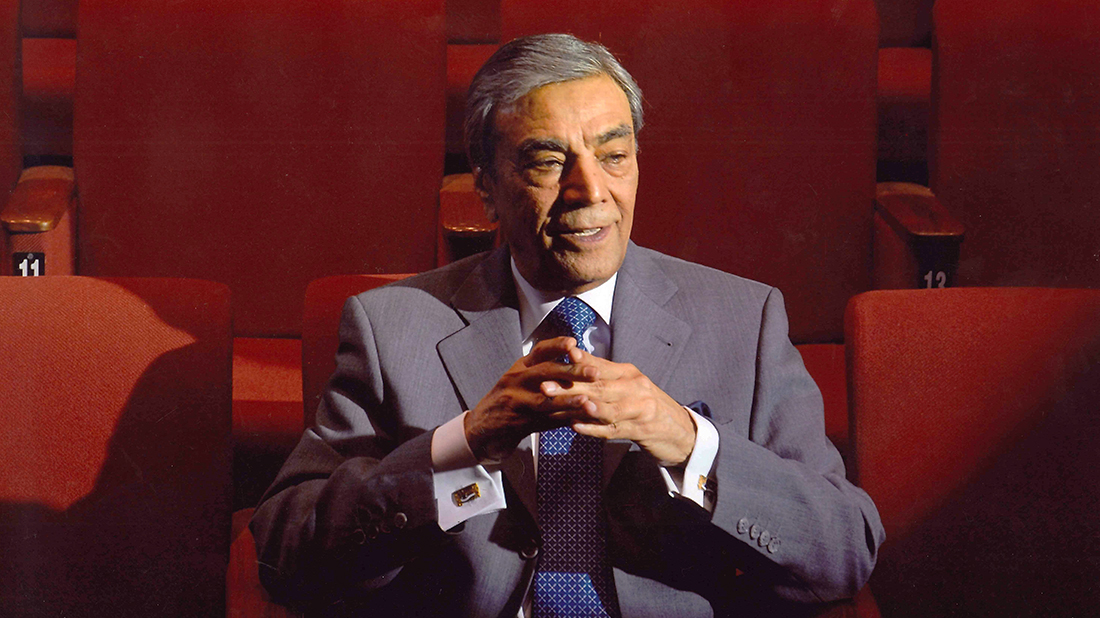
The undated photo shows Zia Mohyeddin, a veteran British-Pakistani actor, producer, director and television broadcaster. (Social media)
Talking about his most recent production, Mohyeddin said many people had asked for free passes instead of buying tickets: “It is important that people buy tickets for theater to survive, make money and create room for more productions.”
He added: “We are just relying on adaptations; we don’t have original scripts and that is a major drawback. We used to have Imtiaz Ali Taj, Rafi Peer who wrote scripts but not anymore. We can only have new productions if we have fresh scripts.”
To set the scene for a genuine revival, Anwar Maqsood said, Pakistan needed to invest in training artists and revive spaces where people could perform, or build new ones.
“We need to create buildings and halls but the government does not pay attention to it,” the playwright and actor told Arab News. “For instance, we can create separate spaces in every major area across Karachi, such as Nazimabad, DHA, etcetera, where theater enthusiasts in the locality can perform. There is so much talent in Karachi.”
Training institutions are also key, as is proven by NAPA, many of whose graduates have made it big in films, television dramas and web series, Mohyeddin said.
“NAPA has contributed heavily to revive theater [in Pakistan] and add value to it,” he added.
“NAPA has trained so many artists who are not just featured in theater productions but are also making a mark on TV, in films and in web series,” he said. “NAPA pass-outs and alumni are performing in theaters in various parts of the country. They are either on the technical side, or serving as actors and directors. They are also teaching at the training academy set up at the Karachi Arts Council.”
Indeed, the Arts Council remains a key contributor to the development of theater in Pakistan. The platform initiated a training academy around two years ago and would soon launch a theater company, the Council’s President, Mohammad Ahmed Shah, said.
“We are launching a theater company at the Arts Council to provide employment opportunities as well as exposure through stage performances,” he said, adding that most students came from lower or middle income backgrounds.
“We have also approached vice chancellors of various universities, both public and private sector, to create theater societies and promote the art form,” Shah said. “There is so much talent that needs some direction … There is a dire need to have educational institutions for theater training. The few that we have are not enough.”
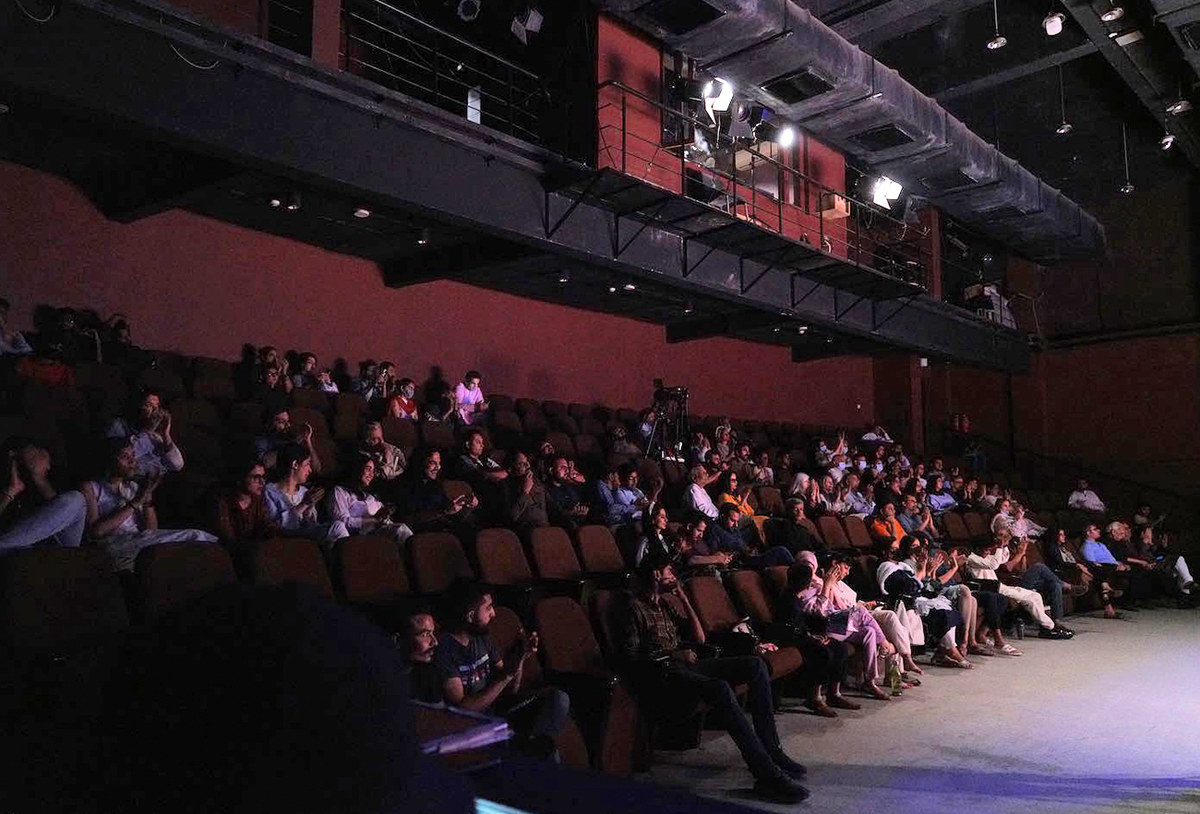
The picture posted on May 16, 2022 shows people watching a show in National Academy of Performing Arts, Karachi, Pakistan. (NAPA Facebook)
The Arts Council is also supporting smaller institutions in Sindh province, with Shah recently calling a meeting of theater groups in Larkana, Dadu, Thatta, Khairpur and Hyderabad, and promising to train artists from the areas and eventually plan a festival to showcase their performances.
“The Sindh Government has been funding all of our endeavors,” he said, “so I want the entire Sindh to benefit from it.”
But Muneeza Hashmi, chairperson of the Alhamra Arts Council in the central Pakistani city of Lahore, said theater had “unfortunately” never been given due importance and was still not a priority. She said there was currently no theater training program at Alhamra.
“Other than NAPA, there is no training school in Pakistan,” she said. “It is a self-taught skill and then you have to be talented enough to step forward to make a mark.”
“There is no theater in Lahore. There is NAPA doing some work in Karachi and there is nothing happening in Islamabad either,” Hashmi said. “Let’s not even speak of Quetta or Peshawar.”



